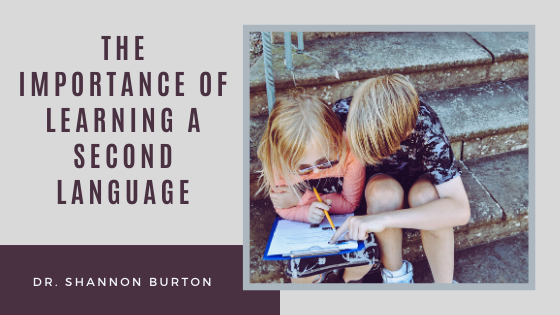Knowing a second language at any age can provide individuals with advantages. Learning another language when one is quite young has proven to be the most beneficial since studies have revealed that the acquisition of another language in early childhood is the opportune time. It is much harder for anyone past puberty to imitate certain phonetic sounds of other words, as well as to retain what was learned.
Teaching Young Children Foreign Words and Sentences
One advantage of teaching a foreign language to young children is the ease of making learning fun for them. Here are some ideas:
-
- Have them learn a familiar English children’s song or nursery rhyme that is sung/recited by a native speaker
- Purchase picture books that come with a recording of the words
- Teach them the names of everyday items and objects. Then, have them use these foreign words instead when speaking of these items (You can label items in the target language at first)
- Have them call out the names of things they know as you travel. Reward the one who names the most.
- Have them speak to family pets and give commands, too, in the new language. (Often dogs will cock their heads one way and another at the strange sounds to the delight of children.)
- Frequently, play recordings of native speakers as they employ basic sentences because children absorb knowledge often without realizing it.
Making Learning a Foreign Language Relevant for Students
Teachers should make the target language something that the students want to learn for personal reasons. For instance, having the students learn phrases such as “May I use the restroom?” or “I need another pen (a sheet of paper, etc.)” will make the new language meaningful to them. Teaching them phrases that express their feelings also encourages students to use the target language. Songs are also a great tool. Students can sing these to their toddler siblings, who will quickly learn them, too.
Engaging the students in activities in which they must use the target language is another method that is relevant and meaningful. Having a meal composed of dishes from the culture under study that requires learners to ask others to pass them drinks or various dishes, as well as to comment in the target language on the tastes, motivates students to learn relevant words quickly. Encouraging knowledge of past and present cultures of the country whose language is under study is also enriching.

